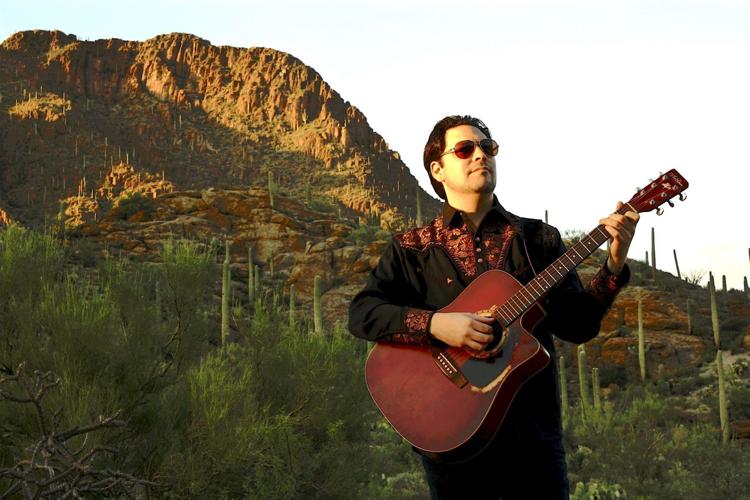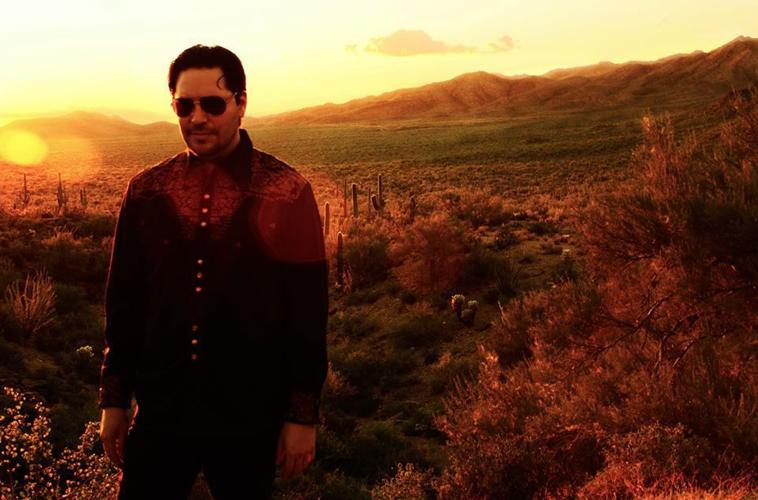You never fully appreciate where you live until you leave.
Just ask Tucson singer-songwriter Jacob Acosta.
A few years back, he left his adopted hometown of Tucson for the Bay Area.
The Cali dream didn’t last long. He returned to Tucson a few months later and settled into a life of creating music, including acoustic indie pop with his trio Roll Acosta, blues rock with Mason, a mixup of genres with his quartet Race You There and a mix of pop, rock and folk as a solo artist.
He’s recorded a dozen albums since he moved from Phoenix to Tucson in 2006 to attend the Fred Fox School of Music at the University of Arizona — he earned a degree in music education — but his latest record, “Desert Sounds,” might be his most ambitious.
And his most personal.
“It’s about Arizona,” he said, describing “Desert Sounds” as both a love letter and travelogue of the state. “It’s one of those places I feel like you don’t appreciate until you’re gone and when you’re back you realize how great it is.”
The 14 songs on the album look at every corner of Arizona, from the Grand Canyon to the crackling, thundering monsoon in “Seven Kings,” a song that draws influences from Silver Screen Westerns and contemporary pop with some symphonic flourishes courtesy of trumpets and quiet strings.
The album opens with the cinematic sounds of Sonoran Desert wildlife — 20 animal noises from crickets chirping, coyotes yelping, the flight of red tailed hawk and in the distance a mountain lion roaring as the desert awakens — to the backdrop of a vintage synthesizer organ. Acosta recorded many of the animal sounds himself at the Desert Museum and curated the rest from a wide catalogue of animals sounds available for the asking.
The album dips into Arizona’s musical melting pot, from nods to mariachi on several tracks, including the bouoyant “Kitchen Table and Our Living Room” and the party train of “Down to Mexico.” The record borrows concept album influences from the Moody Blues and America on “Seven Kings” and “German American Girl,” and wraps all those influences and musical motifs together in the “Desert Sounds Finale,” with lush, toe-tapping mariachi and giant arena rock moments intermingled with flashes of marching band, bits of Hollywood and orchestral grand finishes. As it switches from style to style, you feel like you’re in a car driving down I-17 toward Sedona and Flagstaff and accidentally turn off on the short stretch of two-way to Cave Creek.
“I really hope that people appreciate Arizona if they either move here or visit here or they already live here,” he said of one of his goals for the record, which he will celebrate in a CD release gig Saturday, May 26, at Club Congress.
He hopes that with every song, listeners discover something new about Arizona’s history, environment, wildlife, politics, Native Americans and connection to neighboring Mexico.
“Little Spring” perhaps sums up everything Acosta, 33, is trying to accomplish, from telling the story of Arizona to preaching a bit about preserving the environment and the cultural diversity — “Remember the time this desert told stories / We shared in our glories, and drew lines for seeds / Not just for enemies.”
Acosta, who teaches music and tutors math students at the Academy of Math & Science charter school, said it took him three years to bring the album from concept to CD, including a crowd-sourcing fundraising effort that helped pay some of the $10,000 production costs. He recorded “Desert Sounds” largely in his home studio and mixed it with Bob Hoag at Flying Blanket Studio.
“I kind of just brought all my guns out for this one and brought as much as I could to the table,” he said.





